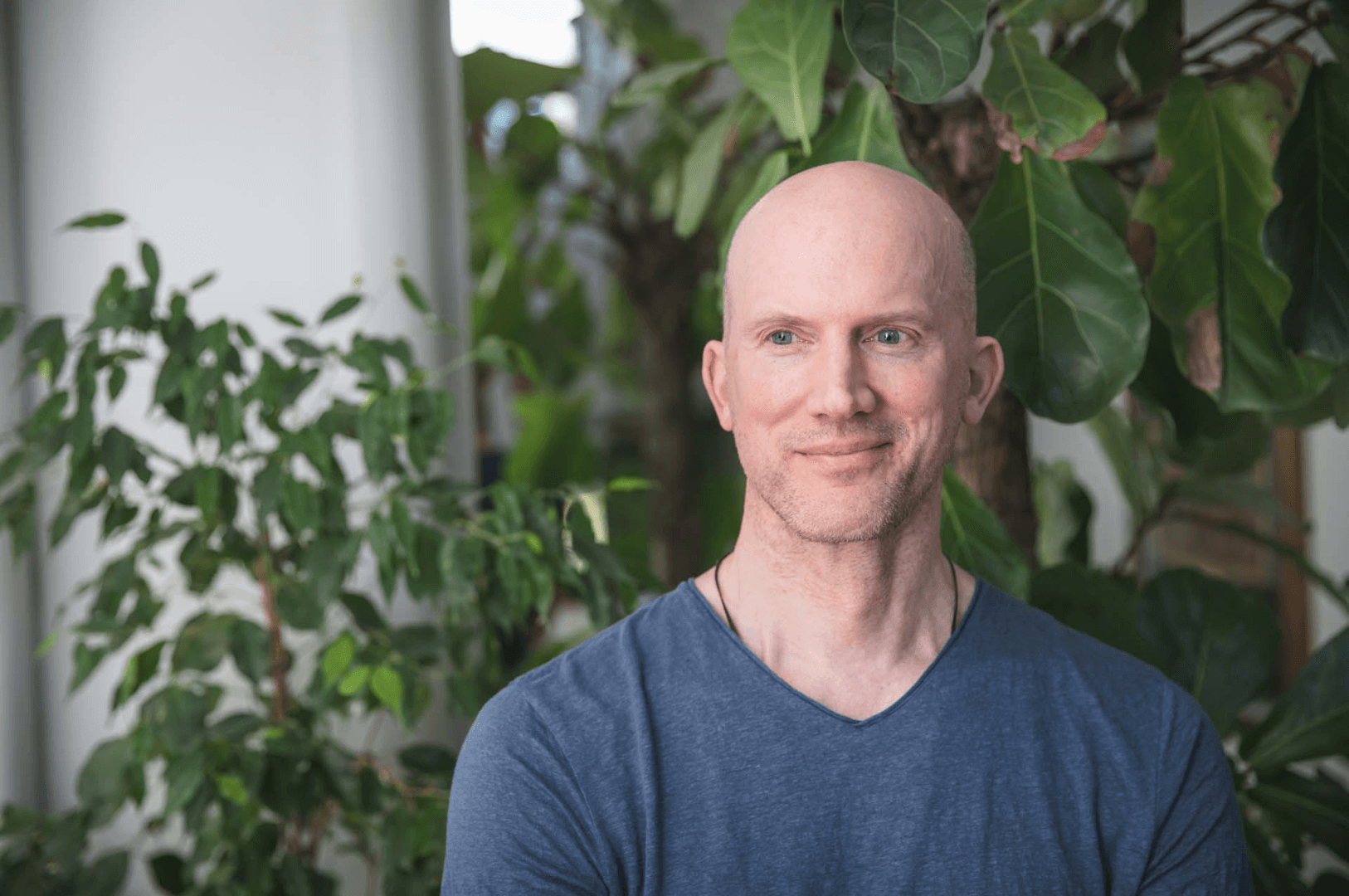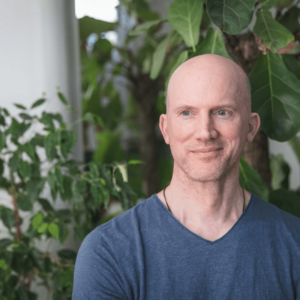From The Telegraph’s Weekend section 1st March 2014
Therapist Benjamin Fry’s privileged upbringing left him ill-equipped for his own collapse. Now he shares the radical ideas that helped him to recover.
A few years ago, I had a major breakdown and was admitted to a specialist psychiatric hospital in Arizona, where I stayed for four months. In that time, I didn’t receive a single card, letter or email from any of my friends or family. Nobody called, nobody visited. Every day, I would check for mail, telephone messages and email. Nothing. Being British and posh, I did what I was bar-coded to do and just carried on.
I know it sounds like a poor little rich kid’s sob story, but bear with me. Behind that sad sketch lies a problem that has plagued me all my life.
My father was a multimillionaire, earning his money through the financial services industry. My mother died when I was 11 months old, but when my father remarried I was brought up at a prestigious address in Knightsbridge, London, and I went first to Eton and then to Oxford. Most normal people would tag me as ludicrously privileged.
By 30 I was married with a child (the first of five), working as a psychotherapist and presenting TV shows such as Freaky Eaters and Spendaholics.
You may not believe it but my life was, in fact, far from golden. I had felt from very early on that there was something wrong with me – I’d wander through my prep school alone at night, anxious. Later, in my twenties, I suffered panic attacks and needed therapy, which was only partially helpful.
Bad things, such as losing a mother, can happen to any of us, but I found that my background had not only prepared me spectacularly badly for dealing with them, but had contributed to the mental health problems they would cause and had been a serious barrier to my recovery.
I became brilliant at faking the kind of extraordinary confidence that people like me, equipped with a world-class education, are supposed to have, but inside I knew I had zero emotional skills.
I didn’t feel as though I could complain, which might have led to suggestions for help – I had drawn lucky in life, so what had I to moan about? People like me don’t cry: we cover our emotions and carry on.
On the surface things looked fine, but I was ignoring a rising panic within. I began to behave more and more recklessly to try to keep my golden façade intact and I invested in the emerging Greek property bubble to compensate for my lack of earnings from the work I loved.
When I lost everything in the crash of 2008, I gradually spiralled into a total collapse and became suicidal. I tried every clinic there was, but nothing helped. In the end, months after I had ignored a recommendation from a therapist friend, I gave in and found myself on a plane to Mellody House, in Arizona.
There, where a new generation of psychological therapies were being pioneered, I finally had a breakthrough.
I learned that conditions we have traditionally called ‘mental health’ problems, such as anxiety and depression, are now beginning to be understood differently.
Increasingly, they are seen as being rooted in the neurobiology of our nervous systems, and in this respect all mammals are almost identical. When faced with stress, which the body perceives as a threat, the body does what it needs to to respond and ensure survival.
However, when there is no chance to allow stressful experiences to resolve themselves naturally, many of us are unable to turn off our ‘neuroception’ of threat long after the threat itself has been survived. This means we get stuck in a frozen state that our system struggles to resolve, resulting in a biological meltdown (aka ‘trauma’). We relive the biology of a child who could not resolve his or her sense of threat.
Outwardly, this can manifest itself as many symptoms including anxiety (when the system overreacts to perceived threat); depression (when it underreacts); OCD; ADHD and ‘medically unexplained symptoms’. These almost always arise from a failure of the nervous system to automatically regulate itself.
Many people unknowingly make things worse by medicating the symptoms of trauma with drugs and alcohol as they try to bring themselves back to a balanced ‘normal’.
As I began to understand this, I realised I could apply it to my own childhood. My mother’s death was a major stress factor that I hadn’t resolved. On top of that – part of the double bind of being posh – I was pushed to be independent from a very young age at boarding school, another stress. I formed weak, anxious attachments because my parents were posh and were therefore the product of an even more difficult generation above. There’s no blame in this, I realised, just biology and causation. Mammals that are well attached in early childhood metabolise threat and stress well; those who are not, do not.
I realised that in 32 years from starting boarding school to being admitted to hospital, I had been hiding. At Eton I was desperate for friendship, and pretended I was fine. At university I didn’t offer friendship, but instead used it. I started a lifelong habit of neglecting friends once I found a woman to comfort me. I just couldn’t get vulnerable, or be open, with anyone. I had to continue the façade, doing what posh people do, living like posh people live, succeeding like posh people succeed; crying was not an option, and so in the end no one even knew who I was. And I don’t doubt that I used and abused my family’s help: I just took from them and then withdrew again. Ours was a typically high achieving, stiff upper lip household, and they didn’t know what to make of my gradual, messy falling apart.
The Arizona centre treated my breakdown with a form of trauma therapy which I now attribute to saving my life.
Working with the body from the ‘bottom up’ (which means literally working upwards through the brainstem rather than from the ‘mind down’, the opposite), my so-called ‘mental health’ problems were restored by a new generation of body psychotherapies, such as Sensorimotor Psychotherapy, Somatic Experiencing and EMDR.
The difference between these and other therapies I’d encountered is that the therapist tries to engage with the mammal part of the brain and biology, not the human thinking or ‘mind’. The instruction to patients is often to engage with ‘sensation’ rather than ‘thought’ and in doing so the therapists are helping us to resolve problems in our mammalian brain (the limbic system) rather than in the human neocortex. This is radically new because it puts the primal, animal instinct before the brilliant, overdeveloped human in the chain of solving this particular problem. And it works.
Months later, recovered and back in England, I began to get back to work. The entrepreneur in me slowly fluttered to life again. My illness had taught me a lot, not least about how difficult it is to find the right kind of help, so I founded a non-profit organisation and lobbied government for better access to more effective treatment for all. Passionate about the ground-breaking therapy that had so helped me, but which was only available in America, I also established a residential clinic, Khiron House, in Oxfordshire, and an outpatient practice in Harley Street.
People began to come in their droves, from every conceivable walk of life. I couldn’t help but observe, however, that those who had grown up with the same advantages as myself, although they had the money for treatment, somehow found it even harder to accept help.
One such posh patient, George, came to see me last year. Educated at Harrow and Cirencester, George led a hedonistic life. Successful in property, he had left it behind to pursue his passion of sponsoring sport. He was charming, flamboyant, but something inside was consuming him. He was unable to tolerate his many romantic relationships for long. He suffered depression, often resorting to shutting himself in his house alone, running his business in his pyjamas. He was resourceful, resilient, but after the umpteenth bout of despair, he became suicidal. His life ‘should have been’ wonderful – and he was ashamed of not being happy, let alone well, and the isolation this caused was almost worse than his illness.
In treatment, we helped him to understand that his nervous system was responding in its natural way to the threats he’d encountered when young (an alcoholic mother and the desperation he felt when he was bullied, aged eight, at his new boarding school). We enabled George to stop judging himself for being unwell, emerge from his crushing self-hatred and accept that he needed help. Finally we were able to admit him to our residential clinic in Oxfordshire and get him on the path to a full recovery.
Anxiety; depression; OCD; bi-polar; addiction: in my clinic we no longer think solely in terms of these recognised conditions. We think of ‘incomplete stress cycles’. Our patients are overwhelmed, responding to life as if it is a constant threat, and they cannot cope.
The first step to recovery is helping patients to understand this. In my case, I also had to come to terms with the reasons why I was alone in that Arizona hospital. And it was because I deserved to be. I had treated people badly.
The damage still runs deep. Much of my family still don’t speak to me and I’m getting divorced, but at least now I understand why. I accept my own adult responsibility for the consequences of my behaviour and have gone a long way towards fixing that permanently – and now can help others to do so too. I was lucky.
Benjamin Fry’s book ‘How I F***ed Up My Life and Made It Mean Something’ is published later this month. He is the founder of Khiron House (www.khironhouse.com) and Get Stable (www.getstable.org).
If you would like a weekly email about new posts on our blog please sign up for our mailing list in the box above right.






